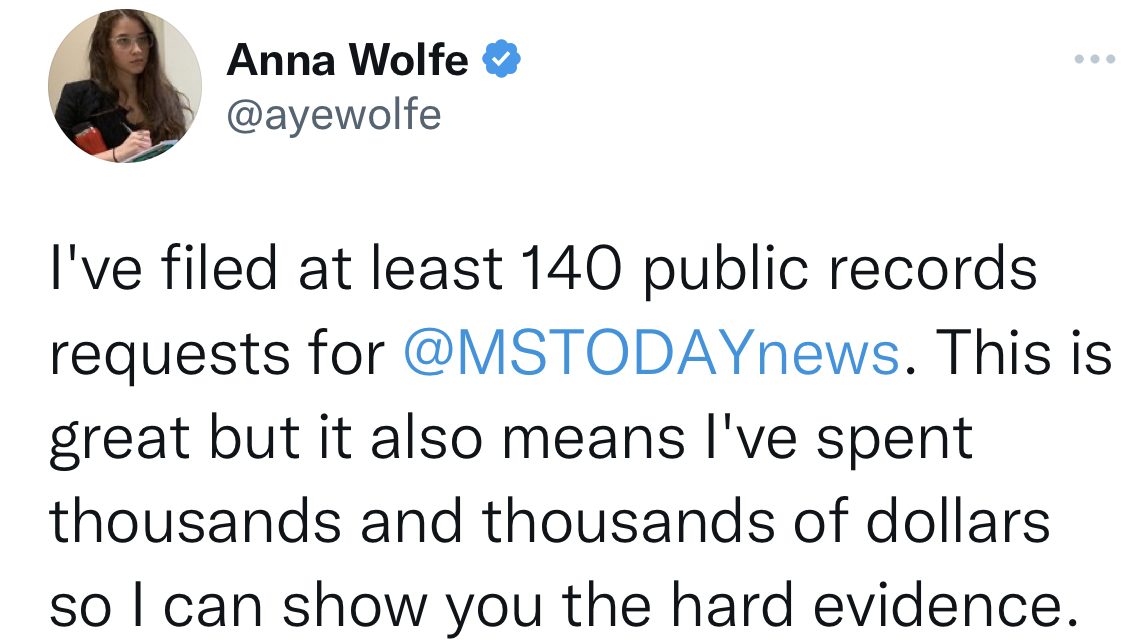The investigator tasked with rooting out fraud in one of Mississippi’s safety net programs is now accused of his own illegal scheme.
Frank Saddler, former director of special investigations for the Mississippi Department of Human Services, used his position between 2014 and 2015 to extort money from convenience store owners who had committed food stamp fraud, according to charges filed last week.
Supplemental Nutrition Assistance Program, formerly known as “food stamps,” is a roughly $70 billion federal program that helps more than 40 million low-income people afford food every month.
Convenience stores commit fraud when they exchange cash for a customer’s Electronic Benefit Transfer (EBT) card or allow purchases for ineligible items like cigarettes and gasoline.
“If they run an EBT card for $130 in their business, that retailer will give the client $70 to $80 in cash and the rest will go into his bank account,” Saddler said in a 2012 WAPT interview. “It’s a very big problem and it seems to be getting bigger at times.”
A 2017 U.S. Department of Agriculture reportfound that 1.5 percent of SNAP benefits were trafficked between 2012-2014, up from 1 percent between 2006-2008. In 1993, the first year the federal government calculated these estimates, the rate of trafficking was more than double at 3.8 percent.
“Most of the people who get SNAP, it’s so unfortunate, they give them SNAP and they don’t have any money to pay their bills and they have to figure out how to get the money,” Shirley Carthan, a resident of Tchula, the poorest town in the state, told Clarion Ledger last fall. “There’s going to be a shortage of food because they have to flip it over (sell) to try to pay the bills, and the government sets them up for failure and fraud because you give them all this money for food and nothing to sustain them to pay their bills and get them through the month … What do you expect? People are going to figure out how to survive.”
One out of five Mississippians live in poverty.
Often, SNAP recipients have difficulty affording items that are not food — rent or utility bills, for example — on which SNAP cannot be used.
Less than 7 percent of Mississippi’s impoverished families receive traditional “welfare” — the basic assistance check from the federal program Temporary Assistance for Needy Families. The state spent $131 million in TANF in 2017 and just 6.5 percent went directly to families by way of a roughly $170 monthly check. The state spends the remainder of TANF funds on other services – such as job training, work supports like transportation, child care, child welfare parenting classes.
Mississippi officials have tried to crack down on fraud within SNAP, Medicaid – the federal insurance program for the poor and disabled – and other public assistance programs.
In 2017, lawmakers passed the Act to Restore Hope Opportunity and Prosperity for Everyone, the “HOPE Act,” which provides state agencies a new computer system to track and verify information provided by applicants for the programs. The system can cross-reference residency, death records and incarceration records.
While less than two percent of benefits are illegally trafficked, the 2017 report says that nearly 12 percent of all stores authorized to accept SNAP engaged in trafficking, a steady increase over time.
Saddler was charged Thursday with extorting from the traffickers. “These things happen,” Jameson Taylor, vice president for policy at Mississippi Public Policy Institute and staunch supporter of the HOPE Act, said in an email Friday. “Under the HOPE Act, the state is using objective measures to root out fraud … These audits reduce the potential for human error.”
The charges against Saddler present one side and do not prove his guilt. Saddler did not return a message to Mississippi Today Friday afternoon.
In 2015, WLOX ran a story about law enforcement officers who “went knocking, one door at a time, looking for people” who receive benefits for which they are ineligible. They arrested two dozen recipients who received roughly $160,000 in SNAP.
Investigators said many SNAP recipients are not entitled to the benefits they’re receiving, WAPT reported. A person might receive SNAP, even if they are ineligible, if they were not honest in their application about having a drug conviction, how much money they make or how many people live in their household.
But, the numbers don’t reflect these narratives of rampant fraud within the SNAP program.
According to the department of human service’s 2017 annual report, investigators found 5,465 claims for improperly received SNAP benefits totaling $7 million, amounting to less than one percent of the entire program. Mississippi spent $841.8 million on food assistance in 2017.
Folks who are found guilty of lying on their application in order to receive benefits face three years in jail and up to $10,000 in fines.
Saddler could face up to 20 years in prison and a fine of up to $250,000, according to the U.S. Department of Justice news release. If convicted, he would also forfeit any money he received through the scheme.
“There is almost nothing more corrosive to our democratic form of government than one who abuses his position of authority and public trust,” U.S. Attorney Mike Hurst said in the release. “Prosecuting public corruption is a priority of this U.S. Attorney’s Office, and those who abuse their power should be on notice that they will be held to account by this Justice Department.”
DHS did not respond to requests for comment for this story.



